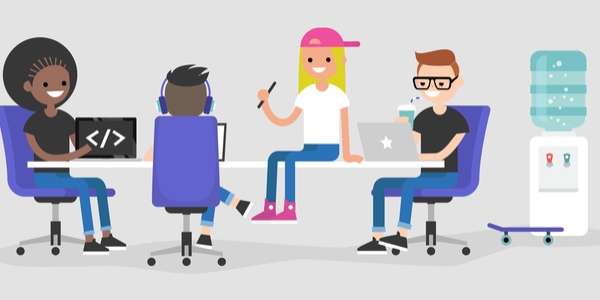How is the modern workforce different from the workforce that went before? Are millennials different from their predecessors in any significant way when it comes to work? Do they have a stronger work ethic or a weaker one? Are they more inclined towards certain professions than others? Are their expectations higher or lower when it comes to salaries?
These are all things you might be wondering about if you run a business. And it’s a good thing to keep track of the job market as well, in case you might need to hire more people at any time in the future.
They’re More Casual
One thing you might notice about millennials is that they are more casual than their predecessors. This expresses itself in terms of dress as well as attitude. They don’t generally dress in suits and might even find suits to be overkill in interview situations. Is this is a good thing or a bad thing?
As an employer, you might be inclined to think it’s a bad thing—that it means that these people aren’t taking their jobs seriously. But remember not to judge a book by its cover. Someone who is casually dressed might still be polite, passionate about their work and responsible—all qualities you need to look for in an employee.
They’re More Creative
Another thing you’ll notice in millennials is a greater emphasis on creativity. It seems like they all want to be in creative jobs, like design, marketing, advertising, writing etc. Of course, you can still find employees to fill your sales and finance positions but it’s possible they might try to do so in a creative way.
This is mostly a good thing because it means a lot of fresh new ideas for your organization. The challenge might be keeping the experimentation at a manageable level, because you can’t implement every new idea that comes your way.
They Treat People Equally
Millennials believe less in hierarchies than their predecessors. This is partly because they are more casual. So they tend to behave the same way with receptionists and people in management positions.
This is also mostly a good thing because it helps to equalize things in the workplace. Also, if someone doesn’t believe in a hierarchy, they’re less likely to act superior in front of certain people and obsequious in front of others.
Yes, they understand that a hierarchy exists and that different people are at different levels in the workplace. But they act in a more democratic way by treating everyone equally.


